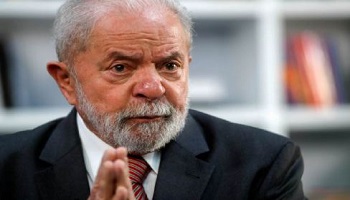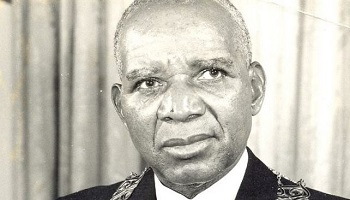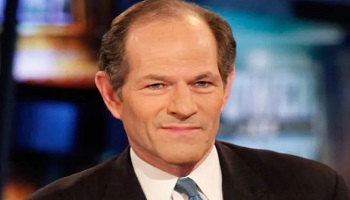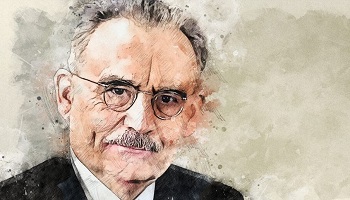
Luiz Inácio Lula da Silva Net Worth Wealth Journey Brazil Resilient Leader
Luiz Inácio Lula da Silva, known simply as Lula, is one of Brazil’s most iconic and polarizing figures in modern politics. Serving as the President of Brazil from 2003 to 2011, and having returned to office in 2023 for his third term, Lula has navigated an extraordinary political and personal journey. From rising out of poverty to becoming one of Latin America’s most influential leaders, Lula’s career has sparked both admiration and controversy. As a result, his financial status and net worth have also been the subject of much scrutiny.
This post delves into Lula’s financial trajectory, his wealth, and the factors that have shaped his net worth over the years. With an understanding of his political rise, legal challenges, and the evolving nature of his financial standing, we can appreciate the complexities of Lula’s wealth and his legacy in Brazilian and global politics.
Early Life and Rise to Power: From Poverty to Politics
Lula’s story is one of rags to riches in the truest sense. Born on October 27, 1945, in the rural town of Caetés, in the state of Pernambuco, Brazil, Lula came from a humble background. Raised in poverty, his early years were marked by struggles that would later influence his political agenda. Lula worked a series of menial jobs, including as a shoemaker, factory worker, and metalworker, before becoming involved in labor unions. His leadership in the metalworkers’ union in São Bernardo do Campo propelled him into politics.
Lula’s entrance into politics came during the turbulent years of military dictatorship in Brazil. As a union leader, he advocated for workers’ rights and began to build a reputation as an advocate for the working class. By the early 1980s, Lula had founded the Workers’ Party (PT), a left-wing political party that focused on labor rights, social justice, and equality.
His rise in the political sphere was slow but steady. After multiple unsuccessful presidential runs, Lula finally won the presidency in 2002. His success was driven by his message of combating poverty and corruption, and his ability to connect with Brazil’s disenfranchised population. As president, Lula implemented policies that led to significant economic growth, particularly benefiting the poor and middle class. His presidency also saw improvements in education, healthcare, and income redistribution programs, which helped increase his popularity both domestically and internationally.
Wealth During Presidency
When Lula first assumed office in 2003, he was not a wealthy man by Brazilian political standards. While his salary as president was substantial, it was not extraordinary compared to other global political leaders. Lula’s wealth during his presidency, however, became a subject of curiosity, particularly as his public image evolved.
According to reports from his early years in office, Lula did not accumulate significant wealth during his time as president. He maintained a relatively modest lifestyle, sticking to his working-class roots despite the perks of the office. His net worth during this time was estimated to be around $1.2 million, largely from his presidential salary, book deals, and speeches. Lula published several books, including his memoirs, which generated substantial income.
However, Lula’s wealth was not as much a reflection of his personal fortune as it was of the economic success of his policies. Under Lula’s leadership, Brazil experienced rapid economic growth, with millions lifted out of poverty through social programs like Bolsa Família. This economic boom fueled Lula’s public image, cementing him as a champion of the people.
Legal Challenges and Imprisonment: Impact on Personal Wealth
In 2017, Lula’s political career and financial standing faced a significant setback. The Operation Car Wash (Lava Jato) corruption investigation, which began in 2014, revealed widespread corruption in Brazil’s state oil company Petrobras. Lula was implicated in the scandal, accused of accepting bribes in exchange for lucrative government contracts. In 2017, Lula was convicted on charges of corruption and money laundering, resulting in a prison sentence.
Lula’s legal battles had a profound impact on his finances. Although he was imprisoned for over a year, it did not lead to any direct loss of personal wealth. However, the political ramifications were severe. Lula’s conviction led to his disqualification from the 2018 presidential elections, paving the way for Jair Bolsonaro’s rise to power. During his imprisonment, Lula’s wealth remained largely unchanged, but his reputation and influence were significantly tarnished.
Lula’s time in prison was also marked by significant legal expenses, including payments for his defense team. These costs contributed to some erosion of his personal savings, but Lula’s popularity remained high among his supporters, who believed the charges were politically motivated. Despite this, Lula’s wealth during this period did not see dramatic changes, as he continued to earn money from his books, lectures, and consulting.
Post-Prison and Return to Power: Financial Comeback
Lula’s return to politics in 2023, following the annulment of his convictions by Brazil’s Supreme Federal Court, marked a new chapter in his political and financial life. His legal battles may have temporarily limited his political influence, but they did not lead to a financial downfall. Lula’s net worth was estimated to be around $1.5 million by the time he resumed his political career.
His resurgence was fueled by the growing discontent with Bolsonaro’s administration and the need for a leader who could bridge Brazil’s deep political divides. Lula’s comeback was seen as both a personal and political victory. It also had financial implications, as his return to power generated lucrative speaking engagements and global media appearances.
Lula’s net worth has been bolstered by his public speaking fees, his writing, and investments in various business ventures. His strong international presence has also allowed him to attract high-paying consulting opportunities, further increasing his wealth. With his political influence reinstated, Lula is now in a position to take advantage of financial opportunities that come with being a world-renowned leader.
Lula’s Net Worth Today: Estimations and Factors Influencing Wealth
As of 2024, Lula’s net worth is estimated to be around $1.5 million to $2 million, a modest amount for a global political figure. While this figure might seem low compared to other world leaders, it is important to understand that Lula has consistently maintained a focus on public service rather than personal wealth accumulation.
The sources of Lula’s wealth today include:
- Book Deals: Lula’s books have been successful and have generated significant royalties. His memoirs, along with works discussing Brazilian politics and social issues, remain popular both in Brazil and internationally.
- Public Speaking: After his presidency, Lula became a sought-after speaker at global events. These engagements contribute significantly to his income.
- Media Appearances: As a prominent global figure, Lula continues to attract media attention. Interviews, documentaries, and special reports about his life and career provide both financial and personal gains.
- Consulting and Advisory Roles: Lula’s political experience has made him a valuable consultant for various international organizations, businesses, and political entities.
Lula’s Legacy and Wealth Beyond Money
Lula’s financial story is one of modest wealth compared to the wealth amassed by many other political leaders. However, his legacy is not measured by his net worth alone. Lula’s impact on Brazil and the world is largely seen in his ability to lift millions out of poverty, challenge the traditional power structures, and represent the interests of the working class.
While his financial status may not be as staggering as some of his peers, Lula’s influence on Brazil’s political landscape is undeniable. His rise from poverty to presidency, his time in prison, and his political comeback all contribute to the complex narrative of his life and career.
In conclusion, Lula’s wealth journey is reflective of his political ideology and priorities. His net worth, while modest by political standards, speaks to his focus on public service, social justice, and economic equality. Lula’s financial trajectory, intertwined with his political career, offers a glimpse into the realities of political leadership in a country as vast and complex as Brazil. As Lula continues to shape the future of Brazilian politics, his financial journey remains an integral part of understanding his multifaceted legacy



